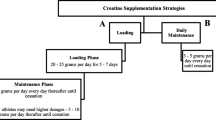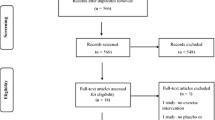Abstract
Recent studies showed that a combination of carbohydrate and protein was more effective than carbohydrate alone for replenishing muscle glycogen after exercise. However, it remains to be unclear whether the source or degree of hydrolysis of dietary protein influences post-exercise glycogen accumulation. The aim of this study was to compare the effect of dietary protein type on glycogen levels in the post-exercise phase, and to investigate the effects of post-exercise carbohydrate and protein supplementation on phosphorylated enzymes of Akt/PKB and atypical PKCs. Male Sprague-Dawley rats, trained for 3 days, swam with a 2% load of body weight for 4 h to deplete skeletal muscle glycogen. Immediately after the glycogen-depleting exercise, one group was killed, whereas the other groups were given either glucose or glucose plus protein (whey protein, whey protein hydrolysates (WPH), casein hydrolysates or branched-chain amino acid (BCAA) solutions. After 2 h, the rats were killed, and the triceps muscles quickly excised. WPH caused significant increases in skeletal muscle glycogen level (5.01 ± 0.24 mg/g), compared with whey protein (4.23 ± 0.24 mg/g), BCAA (3.92 ± 0.18 mg/g) or casein hydrolysates (2.73 ± 0.22 mg/g). Post-exercise ingestion of glucose plus WPH significantly increased both phosphorylated Akt/PKB (131%) and phosphorylated PKCζ (154%) levels compared with glucose only. There was a significant positive correlation between skeletal muscle glycogen content and phosphorylated Akt/PKB (r = 0.674, P < 0.001) and PKCζ (r = 0.481, P = 0.017). Post-exercise supplementation with carbohydrate and WPH increases skeletal muscle glycogen recovery by activating key enzymes such as Akt/PKB and atypical PKCs.




Similar content being viewed by others
References
Armstrong JL, Bonavaud SM, Toole BJ, Yeaman SJ (2001) Regulation of glycogen synthesis by amino acids in cultured human muscle cells. J Biol Chem 276:952–956
Bandyopadhyay G, Standaert ML, Galloway L, Moscat J, Farese RV (1997) Evidence for involvement of protein kinase C (PKC)-zeta and noninvolvement of diacylglycerol-sensitive PKCs in insulin-stimulated glucose transport in L6 myotubes. Endocrinology 138:4721–4731
Berardi JM, Price TB, Noreen EE, Lemon PWR (2006) Postexercise muscle glycogen recovery enhanced with a carbohydrate-protein supplement. Med Sci Sports Exercise 38:1106–1113
Boirie Y, Dangin M, Gachon P, Vasson MP, Maubois JL, Beaufrere B (1997) Slow and fast dietary proteins differently modulate postprandial protein accretion. Proc Natl Acad Sci USA 94:14930–14935
Bradstreet RB (1954) Kjeldahl method for organic nitrogen. Anal Chem 26:185–187
Doi M, Yamaoka I, Fukunaga T, Nakayama M (2003) Isoleucine, a potent plasma glucose-lowering amino acid, stimulates glucose uptake in C2C12 myotubes. Biochem Biophys Res Commun 312:1111–1117
Doi M, Yamaoka I, Nakayama M, Mochizuki S, Sugahara K, Yoshizawa F (2005) Isoleucine, a blood glucose-lowering amino acid, increases glucose uptake in rat skeletal muscle in the absence of increases in AMP-activated protein kinase activity. J Nutr 135:2103–2108
Gannon MC, Nuttall FQ, Lane JT, Burmeister LA (1992) Metabolic response to cottage cheese or egg white protein, with or without glucose, in type II diabetic subjects. Metabolism 41:1137–1145
Greiwe JS, Kwon G, McDaniel ML, Semenkovich CF (2001) Leucine and insulin activate p70 S6 kinase through different pathways in human skeletal muscle. Am J Physiol Endocrinol Metab 281:E466–E471
Hermansen L, Hultman E, Saltin B (1967) Muscle glycogen during prolonged severe exercise. Acta Physiol Scand 71:129–139
Ivy JL, Goforth HW, Damon BM, McCauley TR, Parsons EC, Price TB (2002) Early postexercise muscle glycogen recovery is enhanced with a carbohydrate-protein supplement. J Appl Physiol 93:1337–1344
Jentjens R, Van Loon LJC, Mann CH, Wagenmakers AJM, Jeukendrup AE (2001) Addition of protein and amino acids to carbohydrates does not enhance postexercise muscle glycogen synthesis. J Appl Physiol 91:839–846
Karlsson J, Saltin B (1971) Diet, muscle glycogen, and endurance performance. J Appl Physiol 31:203–206
Klip A, Ramlal T, Bilan PJ, Marette A, Liu Z, Mitsumoto Y (1993) What signals are involved in the stimulation of glucose transport by insulin in muscle cells? Cell Signal 5:519–529
Morifuji M, Sakai K, Sanbongi C, Sugiura K (2005a) Dietary whey protein increases liver and skeletal muscle glycogen levels in exercise-trained rats. Br J Nutr 93:439–445
Morifuji M, Sakai K, Sugiura K (2005b) Dietary whey protein modulates liver glycogen level and glycoregulatory enzyme activities in exercise-trained rats. Exp Biol Med (Maywood) 230:23–30
Morifuji M, Koga J, Kawanaka K, Higuchi M (2009) Branched-chain amino acid-containing dipeptides, identified from whey protein hydrolysates, stimulate glucose uptake rate in L6 myotubes and isolated skeletal muscle. J Nutr Sci Vitaminol (Tokyo) 55:81–86
Nilsson M, Stenberg M, Frid AH, Holst JJ, Bjorck IM (2004) Glycemia and insulinemia in healthy subjects after lactose-equivalent meals of milk and other food proteins: the role of plasma amino acids and incretins. Am J Clin Nutr 80:1246–1253
Nishitani S, Matsumura T, Fujitani S, Sonaka I, Miura Y, Yagasaki K (2002) Leucine promotes glucose uptake in skeletal muscles of rats. Biochem Biophys Res Commun 299:693–696
Passonneau JV, Lauderdale VR (1974) A comparison of three methods of glycogen measurement in tissues. Anal Biochem 60:405–412
Peyrollier K, Hajduch E, Blair AS, Hyde R, Hundal HS (2000) l-leucine availability regulates phosphatidylinositol 3-kinase, p70 S6 kinase and glycogen synthase kinase-3 activity in L6 muscle cells: evidence for the involvement of the mammalian target of rapamycin (mTOR) pathway in the l-leucine-induced up-regulation of system A amino acid transport. Biochem J 350(Pt 2):361–368
Ren JM, Semenkovich CF, Gulve EA, Gao J, Holloszy JO (1994) Exercise induces rapid increases in GLUT4 expression, glucose transport capacity, and insulin-stimulated glycogen storage in muscle. J Biol Chem 269:14396–14401
Sonou T, Higuchi M, Terada S (2008) An acute bout of high-intensity intermittent swimming induces glycogen supercompensation in rat skeletal muscle. Eur J Sport Sci 8:413–420
Tarnopolsky MA, Bosman M, MacDonald JR, Vandeputte D, Martin J, Roy BD (1997) Postexercise protein-carbohydrate and carbohydrate supplements increase muscle glycogen in men and women. J Appl Physiol 83:1877–1883
Tessari P, Kiwanuka E, Cristini M, Zaramella M, Enslen M, Zurlo C, Garcia-Rodenas C (2007) Slow versus fast proteins in the stimulation of beta-cell response and the activation of the entero-insular axis in type 2 diabetes. Diabetes Metab Res Rev 23:378–385
van Loon LJ, Saris WH, Kruijshoop M, Wagenmakers AJ (2000) Maximizing postexercise muscle glycogen synthesis: carbohydrate supplementation and the application of amino acid or protein hydrolysate mixtures. Am J Clin Nutr 72:106–111
Wang Q, Somwar R, Bilan PJ, Liu Z, Jin J, Woodgett JR, Klip A (1999) Protein kinase B/Akt participates in GLUT4 translocation by insulin in L6 myoblasts. Mol Cell Biol 19:4008–4018
Zawadzki KM, Yaspelkis BB 3rd, Ivy JL (1992) Carbohydrate-protein complex increases the rate of muscle glycogen storage after exercise. J Appl Physiol 72:1854–1859
Author information
Authors and Affiliations
Corresponding author
Rights and permissions
About this article
Cite this article
Morifuji, M., Kanda, A., Koga, J. et al. Post-exercise carbohydrate plus whey protein hydrolysates supplementation increases skeletal muscle glycogen level in rats. Amino Acids 38, 1109–1115 (2010). https://doi.org/10.1007/s00726-009-0321-0
Received:
Accepted:
Published:
Issue Date:
DOI: https://doi.org/10.1007/s00726-009-0321-0




